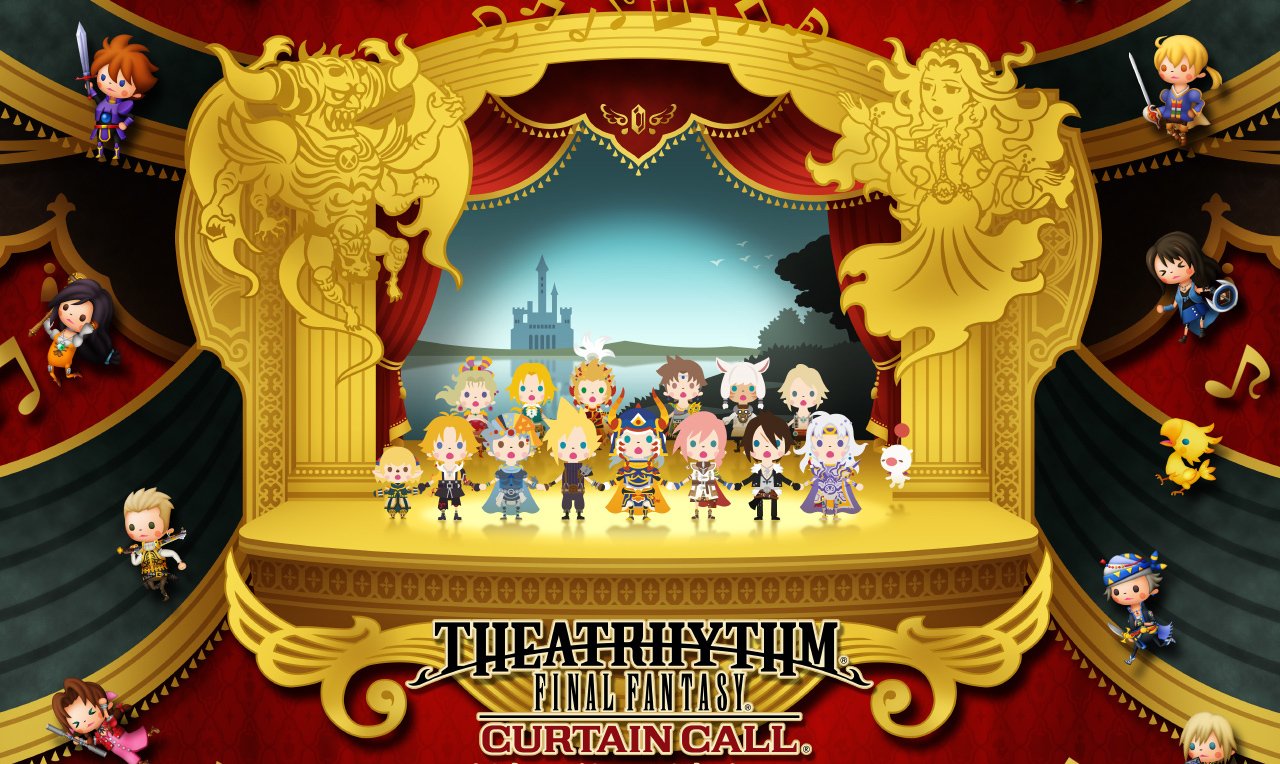GamesRadar+ Verdict
Pros
- +
Accessible rhythm gameplay
- +
Over 200 songs spanning more than twenty titles
- +
Loads of Final Fantasy fan service
Cons
- -
RPG elements are little more than window-dressing
- -
Non-FF fans won't get as much out of it
Why you can trust GamesRadar+
If my time with Theatrhythm Final Fantasy: Curtain Call has taught me anything, it's that you can't have too much of a good thing. A Final Fantasy-themed rhythm game and sequel/standalone expansion to Theatrhythm, Curtain Call includes the dozens of tracks from the original title and adds over a hundred more. It feels like less of a best-of compilation and more of an all-encompassing discography, and also brings new, addictive gameplay modes, enticing you to keep your 3DS at the ready. Though its RPG elements are little more than superficial window-dressing, Curtain Call's core gameplay is strong enough to keep you entertained.
The mood throughout Curtain Call is light-hearted, a strong contrast to the no-nonsense air of the majority of the titles in the Final Fantasy series. You put together a team of cartoony heroes, choosing characters from a massive roster spanning nearly every title with the name Final Fantasy attached to it. Want to assemble an all-star team where Cloud and Tidus fight side-by-side? Go for it, even if it's just for kicks, as each team of four doesn't play very differently from the next. As far as plot goes, it's a bit convoluted--something about magic crystals and a couple gods fighting each other--but the fun factor doesn't hinge on it.
The core gameplay in Curtain Call is challenging, tense, and most importantly, fun. Just as in the original Theatrhythm game, you watch the upper 3DS screen for visual cues while tapping away at the lower touch screen in time with famous soundtracks of Final Fantasy lore. It's always satisfying to get a Critical hit from a perfect tap on a trigger, or to nail that directional swipe at the end of a held note. Too easy on the Basic skill level? Crank it up to Expert or Ultimate and you're sure to find a worthy challenge. Each touch is responsive and accurate, so if you screw up, you know it's your fault--no game-blaming, here. Curtain Call also introduces an alternate control scheme that lets you use the buttons and circle pad in lieu of the stylus, and both are equally viable for musical enemy beat-downs.
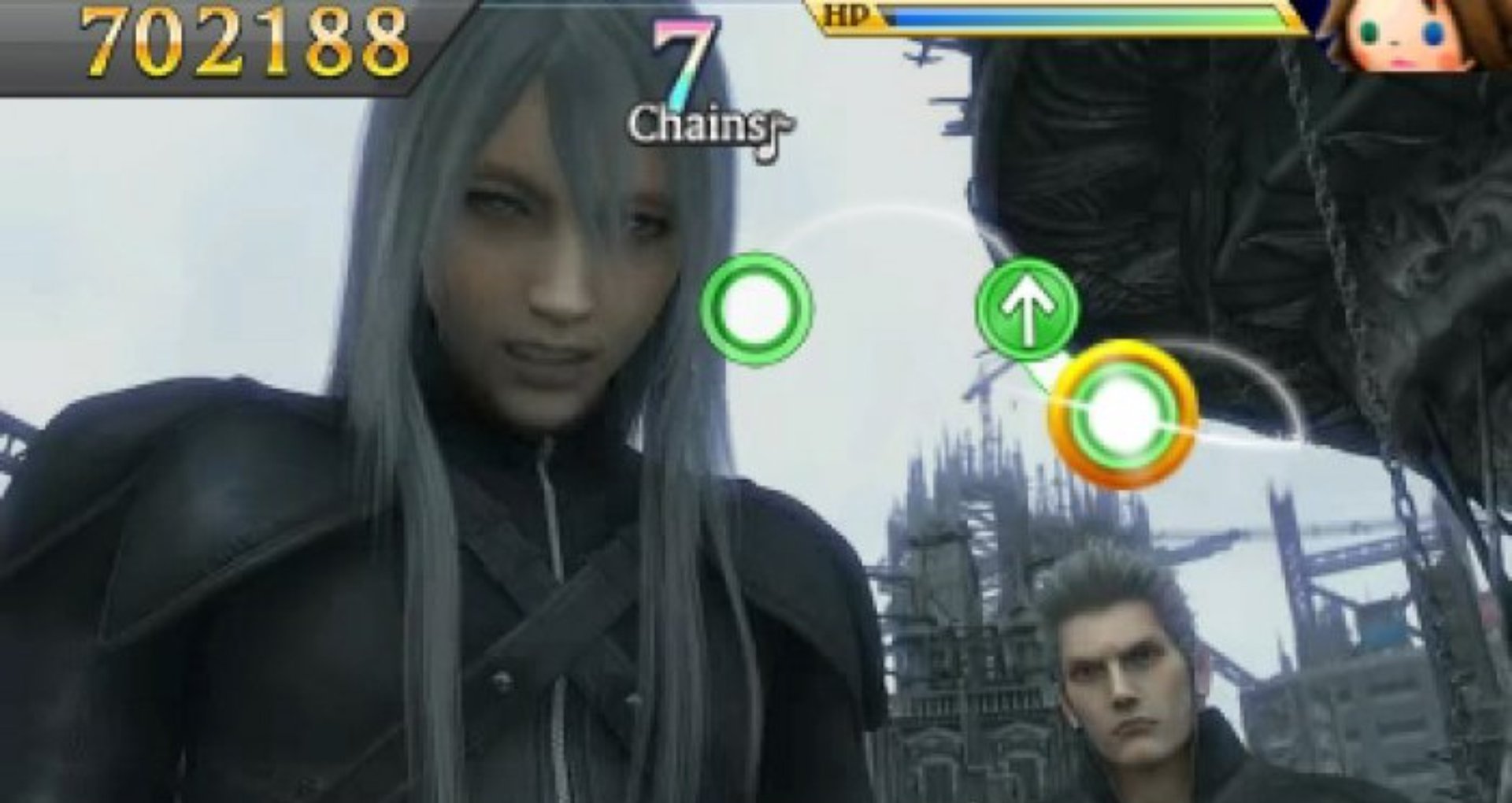
The three different types of stages reprise their roles from the first title. Field Music stages, where the goal is to cover as much distance as possible, are played to overworld themes. Battle Music stages are hectic levels that pit your team against various enemies and serve as the toughest tests; you attack, use abilities, and even summon gods by nailing your triggers with perfect timing. The Event Music stages are simpler bits of fan-service, providing a low-tempo rhythm game superimposed over a memorable cinematic from a Final Fantasy title. In each of these stage types, you must reach the end without draining your hit points, which tick down with every botched note. No previous Theatrhythm experience is necessary to enjoy Curtain Call; simple stages and informative tutorials are welcoming if you're new to the series, while the higher skill levels ramp up the challenge as you get comfortable.
Instead of messing with the core experience of Theatrhythm, Square Enix simply added more content--a lot more. Curtain Call boasts 221 songs spanning more than twenty different Final Fantasy titles. That's a massive addition when compared to the 39 songs in the original, and Curtain Call even includes music from offshoots like Final Fantasy VII: Advent Children and the Dissidia titles. The sheer number of songs goes a long way on its own to boost the already good replay value of the series.
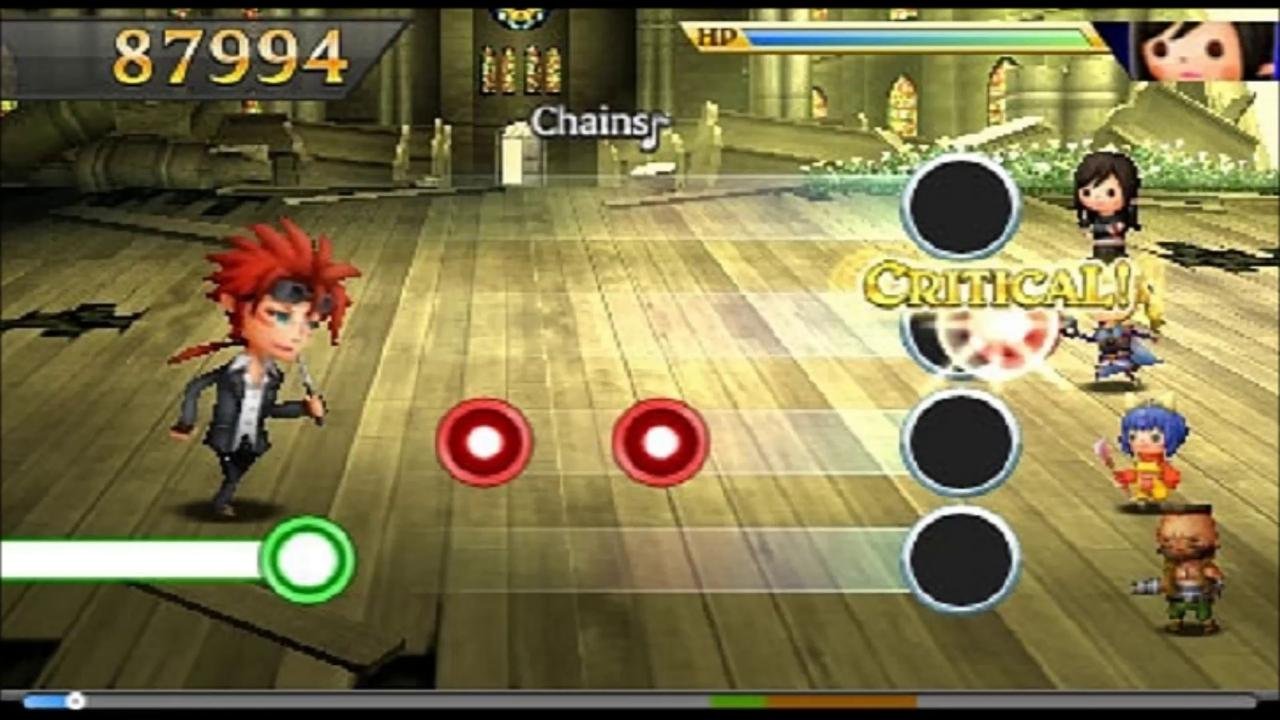
But Curtain Call isn't just Theatrhythm with more songs--the new gameplay modes steal the spotlight. One of them is Quest Medley (expanded from the mode found on the iOS version of Theatrhythm), which offers up missions of varying lengths and difficulties through random collections of songs called Chaos Maps. You battle over branching paths, and each Map is punctuated by a showdown with a final boss. The catch: your HP meter doesn't refill between each stage as it does in other modes, so you'll need to watch yourself every step of the way in order to succeed. A Short Quest may only contain about ten stages, whereas a Long Quest could run over forty, with a new randomized Chaos Map unlocked after every successful run. Add in the ability to use items like tents between stages to refill HP, and this mode not only brings the Theatrhythm gameplay closer to the traditional Final Fantasy experience, it's also much more engaging than just picking a song and playing it.
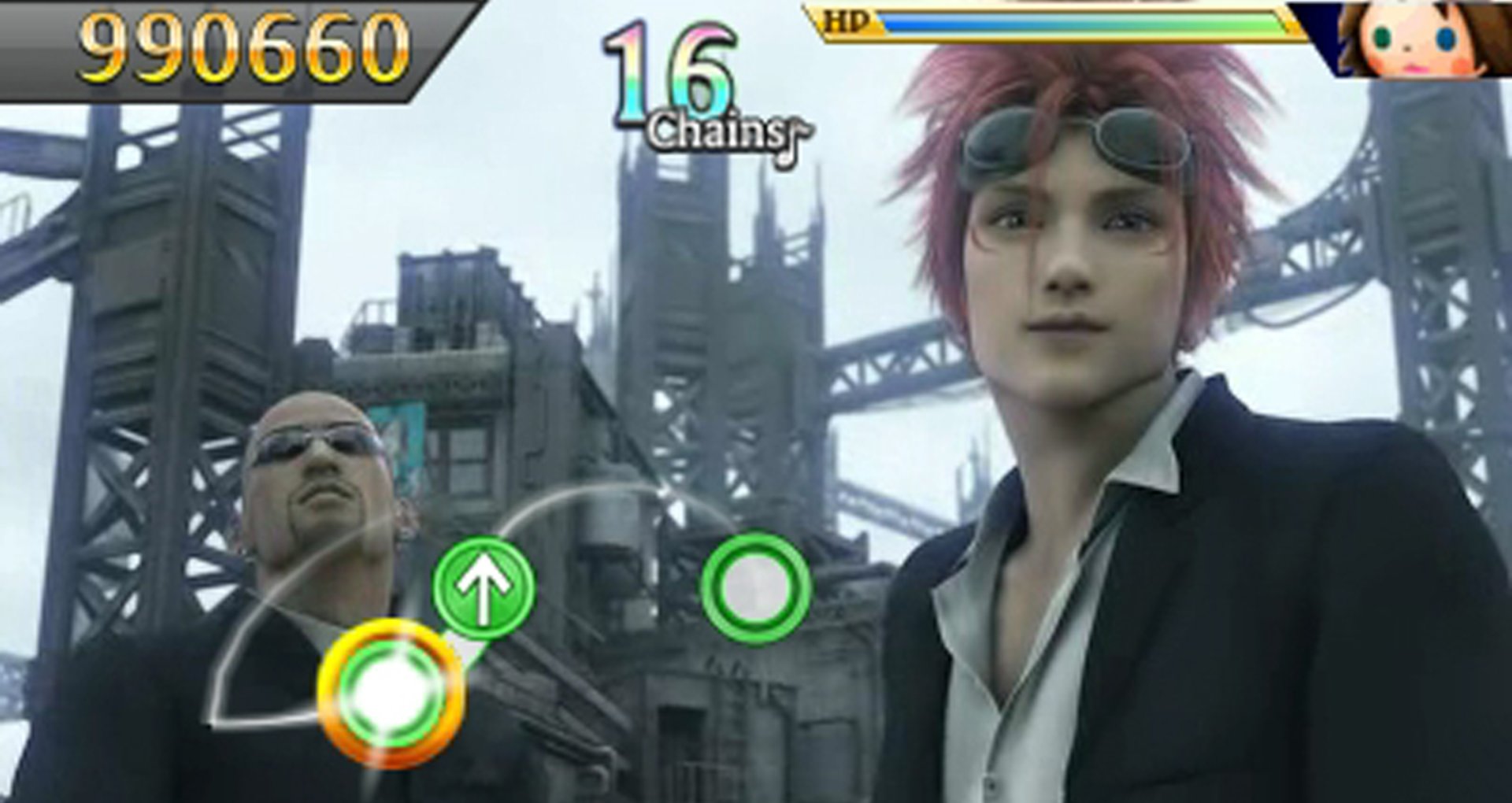
Feeling cocky about your Theatrhythm skills? Curtain Call introduces a Versus mode for the ultimate test, pitting you against another player on the same Battle Music stage. The hook here is the EX Meter, which fills as you make accurate hits, and assaults the opposing player with one of nine special attacks, called EX Bursts, when maxed-out. Some of these can be pretty devastating: the Judgement Burst changes any trigger that isn't a perfect critical hit to a bad one, and Mystery Triggers wait until the last moment to reveal their identities. I was only able to sample the Versus Mode against AI opponents, but it was enough to prove that you'll never be without a new challenge in Curtain Call.
As a tribute to a storied RPG franchise, Curtain Call isn't without role-playing elements of its own, but they're little more than window-dressing in practice. Once you assemble your dream team, they'll level-up and earn new abilities that activate when certain conditions are met, such as one that will restore some HP when you hit a chain of accurate notes in a Battle Music stage, or another that helps you cover more distance on the back of a speedy chocobo in a Field Music stage. There's minimal player interaction, as all these systems just sort of play out on their own. Still, I can't deny the nostalgic tickle I got from populating my team full of Final Fantasy 4 characters with Cecil leading the charge, even knowing it was mostly an aesthetic choice.
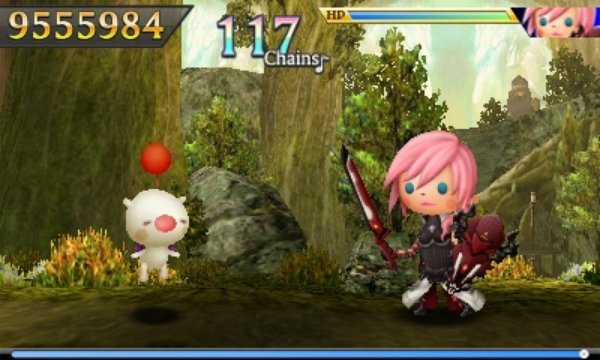
That's the kicker with Curtain Call: you need to be a Final Fantasy fan to get the most out of it. There's unlockable fan service at every turn, from playable characters and trading cards, all the way to classic cinematics and the soundtracks themselves. If you're not familiar with much of the franchise, you'll have little appreciation for everything at play because the value here is directly related to how invested you are in the series as a whole.
If the words 'Final Fantasy' are in any way important to you, you'll find a lot to like about Curtain Call. Square Enix smartly avoids the temptation to mess with the fun, addictive formula of the original Theatrhythm, and instead packs in a bevy of additional songs and game modes, adding tremendously to the rhythm game's longevity. It's difficult to say how much a non-FF fan will get out of this sequel, but if your personal collection contains a game or two from the classic franchise, then Curtain Call deserves a starring role in your 3DS library.
While Theatrhythm Final Fantasy was a great tribute to the franchise's music, Curtain Call goes the extra mile with tons of additional content to become the definitive game in the series.
More info
| Genre | Rhythm |
| Description | Use music as your weapon with over 60 characters spanning throughout the entire final fantasy universe. |
| Platform | "3DS" |
| US censor rating | "Teen" |
| UK censor rating | "" |
| Release date | 1 January 1970 (US), 1 January 1970 (UK) |
